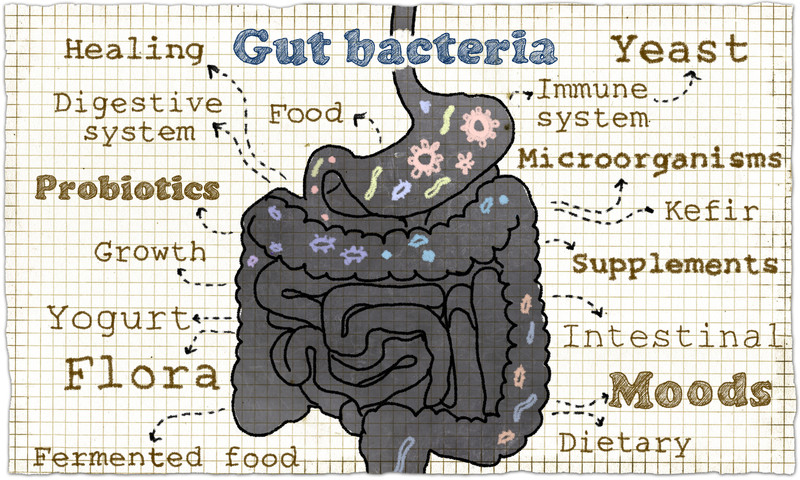
The short answer to this question is… Yes!
Probiotics and probiotic foods are an essential part of any active girl or woman’s nutrition plan for two important reasons:
1. Athletes who use probiotics have direct performance benefits.
In a placebo-controlled study of 10 runners given 45 billion CFU of Lactobacillus, Bifidobacterium, and Streptococcus strains, the run time to fatigue increased (mins 37:44 ± 2:42 versus 33:00 ± 2:27; P= 0.03) (Shing et al., 2014)
Heat stress damage to the intestinal mucosal membrane increases intestinal permeability and increases inflammation in athletes (Pyne, et al., 2014.) Hydration and probiotic supplementation can reduce the negative performance impacts of heat stress and inflammation in athletes.
2. Athletes who use probiotics have a stronger immune function and get sick less often. They don’t miss training, practice, games, or competitions as often or for as long as those who don’t take probiotics. They experience fewer and less severe respiratory and gastrointestinal illnesses.
There are a number of factors that contribute to the increased risk of respiratory and gastrointestinal illness in athletes: foreign travel, increased lung ventilation, skin abrasions, poor sleep, overtraining, emotional stress, environmental stress, exposure to polluted air, lack of nutrient intake or absorption, and lack of hydration (Gleeson, 2016)
In a 2011 meta-analysis by the Cochrane Review, probiotics in general were found to reduce the episodes of acute respiratory infections in both inactive and active subjects (Hao, et al., 2011).
The most commonly studied probiotics in athletes are the strains: Lactobacillus casei, L. fermentum, L.acidophilus, and L. rhamnosus (Pyne, et al., 2015.)
Bifidobacterium species have also been found to be helpful in some studies on active subjects (Gleeson, 2016.)
Fatigued athletes who supplemented with L. acidophilus (2.0 × 1010 cells per day) for 4 weeks had improved interferon-γ secretion and thus improved T cell functioning (Geuking et al., 2013.)
Plus, in a study of 84 active people consuming L. casei (Shirota) or placebo for 16 weeks, those consuming the probiotics had substantially fewer respiratory illnesses (Gleeson, Bishop, Oliveira, & Tauler, 2011.)
Thirty-six percent fewer subjects in the probiotics group, compared with the control group, reported respiratory illnesses.
And, those taking the probiotics had better maintenance of their salivary IgA levels compared with those in the placebo group who’s IgA levels dropped. (Gleeson, Bishop, Oliveira, & Tauler, 2011).
Clearly, we don’t have enough research to make very specific strain or dosage recommendations yet.
But, we do know that probiotic supplements support immune function and the health of the gastrointestinal mucosa.
Unfortunately, the effect may be larger in male athletes than female athletes.
A randomized controlled trial involving a large number (n= 99) of physically active male and female adults was conducted (West et al., 2011).
After supplementation with L. fermentum for 77 days, the males demonstrated a significant decrease in respiratory and gastrointestinal symptoms and an increase of 7.7 fold in Lactobacillus numbers.
There was a much smaller increase in Lactobacillus species in the active women subjects, and the same decrease in symptom reduction was not observed.
Thus, it’s possible that distinct species and/or dosages are important in male vs. female athletes to have the same effect.
Thus, clinically, I do recommend broad-spectrum probiotic supplements containing a variety of the strains that have been studied (detailed above), and thus will at least do no harm. For all active women and girls adding fermented (probiotic) foods to the training table is the best first step.
For the least expensive, and often most effective option, fermented foods can be made at home. High-quality probiotic foods are increasingly available at farmer’s markets and grocery stores.
Some of my favorite probiotic resources are:
Summer Bock’s Making Fermented Vegetables at Home
Farmhouse Culture Fermented Foods
So Delicious Dairy Free Coconut Yogurt (choose the unsweetened options)
References:
Geuking, M., McCoy, K., & Macpherson, A. (2013). Metabolites from intestinal microbes shape Treg. Cell Research, 23, 1339–1340. doi:10.1038/cr.2013.125
Gleeson, M (2016) Immunological aspects of sport nutrition, Immunology and Cell Biology, 94, 117– 123
Gleeson, M., Bishop, N., Oliveira, M., McCauley, T., Tauler, P., & Lawrence, C. (2012). Effects of a Lactobacillus salivarius probiotic intervention on infection, cold symptom duration and severity, and mucosal immunity in endurance athletes. International Journal of Sports Nutrition and Exercise Metabolism, 22, 235–242.
Hao Q, Lu Z, Dong BR, Huang CQ, & Wu T (2011) Probiotics for preventing acute upper respiratory tract infections, Cochrane Database Syst Rev, Sep 7;(9):CD006895. doi: 10.1002/14651858.CD006895.pub2.
Pyne DB, Guy JH, Edwards AM (2014) Managing heat and immune stress in athletes with evidence-based strategies, Int J Sports Physiol Perform, 9(5), 744-50. doi: 10.1123/ijspp.2014-0232. Epub 2014 Jun 6.
Pyne, DB, West, NP, Cox, AJ, & Cripps, AW (2015) Probiotics supplementation for athletes
– Clinical and physiological effects, European Journal of Sport Science, 15:1, 63-72, DOI:
10.1080/17461391.2014.971879
Shing, C., Peake, J., Lim, C., Briskey, D., Walsh, N., Fortes, M.,… Vitetta, L. (2014). Effects of probiotics supplementation on gastrointestinal permeability, inflammation and exercise performance in the heat. European Journal of Applied Physiology, 114, 93–103. doi:10.1007/s00421-013-2748-y
West, N., Pyne, D., Cripps, A., Hopkins, W., Eskesen, D., Jairath, A.,… Fricker, P. (2011). Lactobacillus fermentum (PCC®) supplementation and gastrointestinal and respiratory-tract illness symptoms: A randomised control trial in athletes. Nutrition Journal,10, 30. doi:10.1111/j1753-4887.2007.tb00272.x







